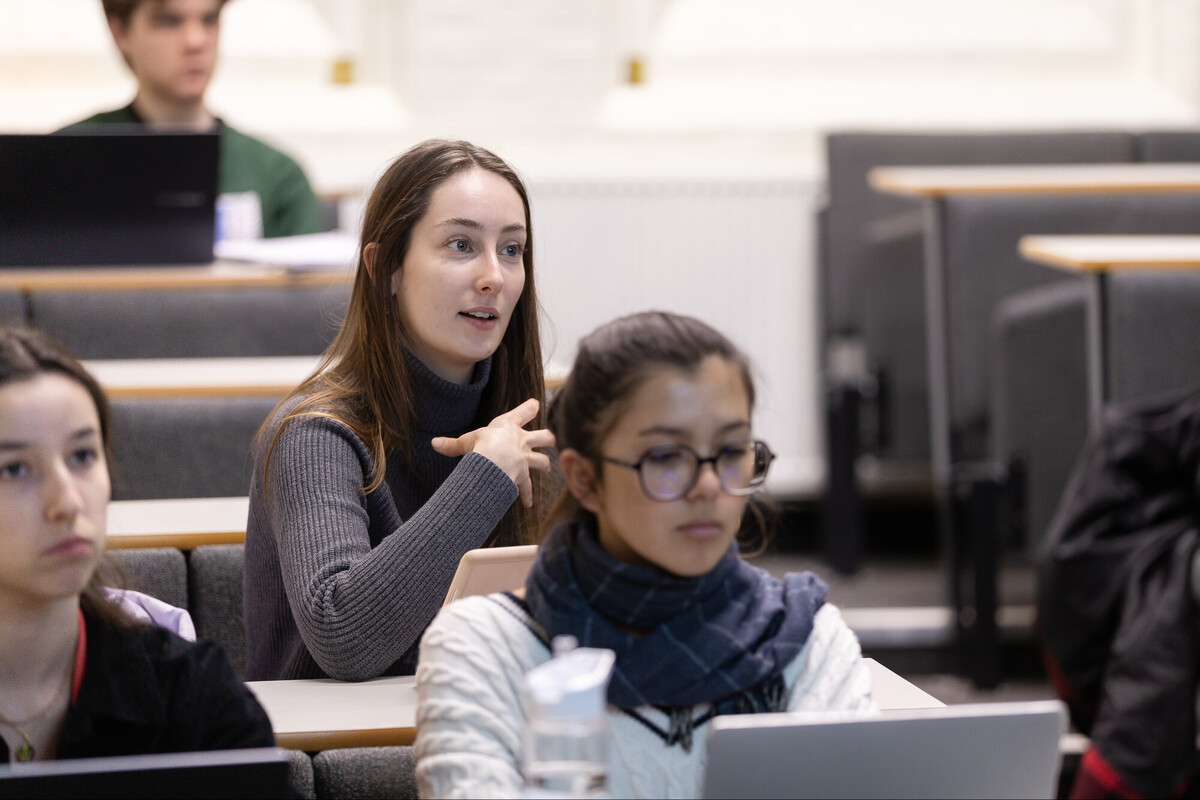English MRes

You are viewing Course summary
Course Summary
The MRes in English is designed to allow you to develop and complete an independent research project in English literature and/or language, with the support of a well-qualified supervisor. An initial Research Methods module will ensure that you have the necessary skills to advance to the dissertation.
Your supervisor will be an active researcher in the field you wish to explore and can, therefore, offer expert guidance to help you shape your own project and develop as an independent researcher. You will also be joining a dynamic community of postgraduate researchers. We recognise the importance of pastoral care and offer a supportive environment in which to learn and study.
What you’llStudy
The Research Methods module introduces skills such as: using databases and archives; writing abstracts and conference presentations; compiling annotated bibliographies; collecting written and spoken data; qualitative and quantitative methods in English language research; and cutting-edge research strategies and techniques. You will use these skills to research and write your dissertation.
Module content:
This module allows students to identify their own research needs and requirements as they begin their Master’s-level study of literature or language, and look forward to their dissertations. The module also expands students' understanding of the research methods and methodologies available to them, and ways of employing them effectively. Scheduled seminars will cover generic issues such as Writing a Research Proposal; Developing a Research Methodology; Using Archives; Online Resources; Newspaper and Journal Databases; Reflecting on Research; Digital Dissemination; Abstracts and Conference Papers; Planning and Writing the Dissertation. Students will also have tutorials with their supervisors to discuss appropriate research methodologies for their individual projects.
Module aims:
- To develop the range of research skills, competencies, methods and methodologies necessary to a researcher in English literature/language;
- To assist students in identifying their research questions, and the skills, methods and methodologies required by their individual projects;
- To enable students to make sophisticated analyses and evaluations of research methods and approaches;
- To provide a supportive and critically reflective environment for the dissemination, discussion and development of research projects.
Module content:
All students will produce a 28,000-word literature and/or language dissertation (options available) inspired in different ways by an aspect of English studies, and supported by the English Department’s literary and language specialisms. In researching their dissertations, students will spend time working in archives, libraries and other repositories. An appropriate supervisor will be assigned to each student, from either a literature and/or language background, and their guidance, advice and support will be given through regular one-to-one tutorials and email contact. The supervisor will provide considerable academic and practical assistance; however, the dissertation will be the result of the student’s own independent research.
Module aims:
- To further and develop students' detailed knowledge in one or more areas of specialism within English studies of their choice
- To familiarize students with a range of primary and secondary texts appropriate for their dissertation topic
- To enable the students to explore and examine critically the research base of their chosen topic
- To facilitate students in selecting and pursuing topics to produce independent research
Teaching
While the MRes requires substantial independent study, you will be expected to have regular meetings with your supervisor, attend seminars and other research skills training events, and use the online Postgraduate Research Development tools. You will also be expected to attend postgraduate and staff research seminars.
Assessment
You will be assessed through coursework (e.g., book reviews, annotated bibliographies, essays, reports, presentations) and a dissertation. The dissertation will develop from your initial research proposal; this will be an original contribution to your field of study.
Entry Requirements
2:1 honours degree
Applicants normally require a 2:1 honours degree in English Literature, English Language, or English Literature and Language, but consideration will be given to those who hold a lower classification who can demonstrate they are capable of performing at the level required to complete the course successfully. Applicants are subject to written application, research proposal, evidence of written work, references, and interview.
Before applying, please complete an enquiry form. Include a paragraph outlining your proposed research topic, so that we can advise on the project’s viability and the availability of expert supervision. Be specific about, for example, key texts, authors, historical periods, linguistic corpora, hypotheses, theoretical approaches, and methodologies. If the project seems suitable, you will be put in touch with a potential supervisor who may provide brief feedback on a longer proposal prior to application. On your application form, you will be asked to name this supervisor.
2:1 honours degree
Applicants normally require a 2:1 honours degree in English Literature, English Language, or English Literature and Language, but consideration will be given to those who hold a lower classification who can demonstrate they are capable of performing at the level required to complete the course successfully. Applicants are subject to written application, research proposal, evidence of written work, references, and interview.
Before applying, please complete an enquiry form. Include a paragraph outlining your proposed research topic, so that we can advise on the project’s viability and the availability of expert supervision. Be specific about, for example, key texts, authors, historical periods, linguistic corpora, hypotheses, theoretical approaches, and methodologies. If the project seems suitable, you will be put in touch with a potential supervisor who may provide brief feedback on a longer proposal prior to application. On your application form, you will be asked to name this supervisor.
English Language Requirements
For more information on our English Language requirements, please visit International Entry Requirements.
Fees and Funding
£5,006per year full time (2025/26)
The tuition fees for home students studying Postgraduate Research Programmes in the academic year 2025/26 are £5,006 per year full time.
£15,084per year full time (2025/26)
The tuition fees for international students studying Postgraduate Research Programmes (Classroom) in the academic year 2025/26 are £15,084 per year.
The tuition fees for international students studying Postgraduate Research Programmes (Laboratory) in the academic year 2025/26 are £19,133 per year.
For more information, go to our International Fees, Scholarship and Finance section.
Irish Nationals living in the UK or ROI are treated as Home students for Tuition Fee Purposes.
Your course will involve additional costs not covered by your tuition fees. This may include books, printing, photocopying, educational stationery and related materials, specialist clothing, travel to placements, optional field trips and software. Compulsory field trips are covered by your tuition fees.
The University of Chester supports fair access for students who may need additional support through a range of bursaries and scholarships.
Full details, as well as terms and conditions for all bursaries and scholarships can be found on the Fees and Finance section of our website.
Your future Career
Job prospects
The MRes is an ideal pathway to a PhD for those who are considering a future career in academia, but the strengths developed during the degree, such as advanced communication, analytical and research skills, will be attractive to employers in a wide range of fields.
Careers service
The University has an award-winning Careers and Employability service which provides a variety of employability-enhancing experiences; through the curriculum, through employer contact, tailored group sessions, individual information, advice and guidance.
Careers and Employability aims to deliver a service which is inclusive, impartial, welcoming, informed and tailored to your personal goals and aspirations, to enable you to develop as an individual and contribute to the business and community in which you will live and work.
We are here to help you plan your future, make the most of your time at University and to enhance your employability. We provide access to part-time jobs, extra-curricular employability-enhancing workshops and offer practical one-to-one help with career planning, including help with CVs, applications and mock interviews. We also deliver group sessions on career planning within each course and we have a wide range of extensive information covering graduate jobs .










